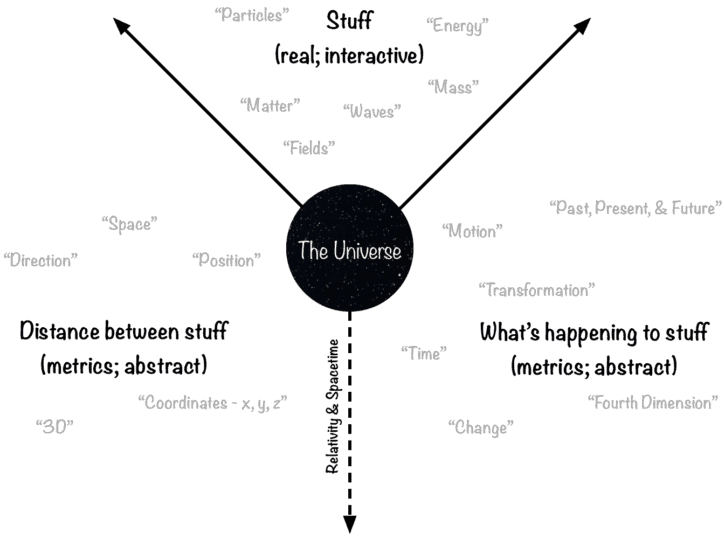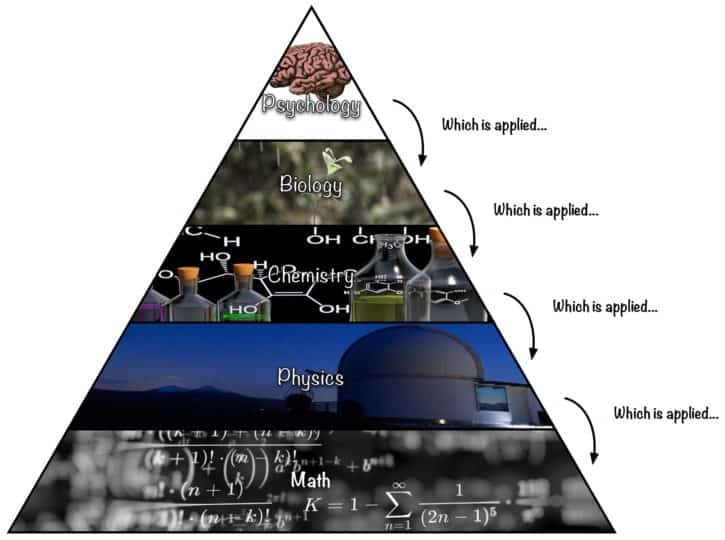We’ve covered some challenging concepts so far – space, time, quantum physics, special and general relativity, thermodynamics, etc. One of the difficulties with physics is the sheer number of terms being thrown around. So I thought I’d provide some needed perspective with a few visuals…
Physics

At it’s root, physics is the science of the “physical,” meaning what you can interact with and measure. I chose to use the word “stuff” in the graphic above because you can find loopholes and weaknesses with any of the words in grey.
For example, I’ve heard folks say the Universe is ultimately made of…
- “Energy” – Technically yes, but there’s enough difference between energy and mass that mass should have it’s own distinction
- “Waves” – Technically yes, but there’s enough difference between waves and particles that particles should have their own distinction
- [Insert Word] – Yes, but… etc. etc. etc.
I also considered using the word “things” to describe everything in the Universe, but it’s less suitable in physics because “stuff” has a more physical connotation. For example, an idea could be a “thing.” But would you call an idea “stuff?” Not really!
Therefore, physics is about understanding “everystuff” in the Universe – where stuff is in relation to other stuff (space) and what stuff is doing (time).
Physics has its place second-to-bottom on the hierarchy of sciences. Mathematics is the most fundamental of course (being the only truly Universal information language), but physics is what bridges math with the physical Universe. All other sciences are simply successive extrapolations that build from this foundation.

In reverse engineering the Universe, it’s important to understand what science is and how all the sciences relate to each other. The graphic above is the summation of a huge amount of work people have done to figure out how the Universe works (and thus, how we work). It’s our least-shitty explanation of all the stuff out there.
In fact, that’s what science really is – the least shitty explanation. It doesn’t “prove” anything; it’s simply the least shitty of all available thoughts and theories.
Philosophy leads the charge into the unknown and usually represents our starting point, but it’s science that represents ultimate understanding. I’d argue it’s the goal of all philosophical thought to end up a science; to arrive at the least shitty explanation!